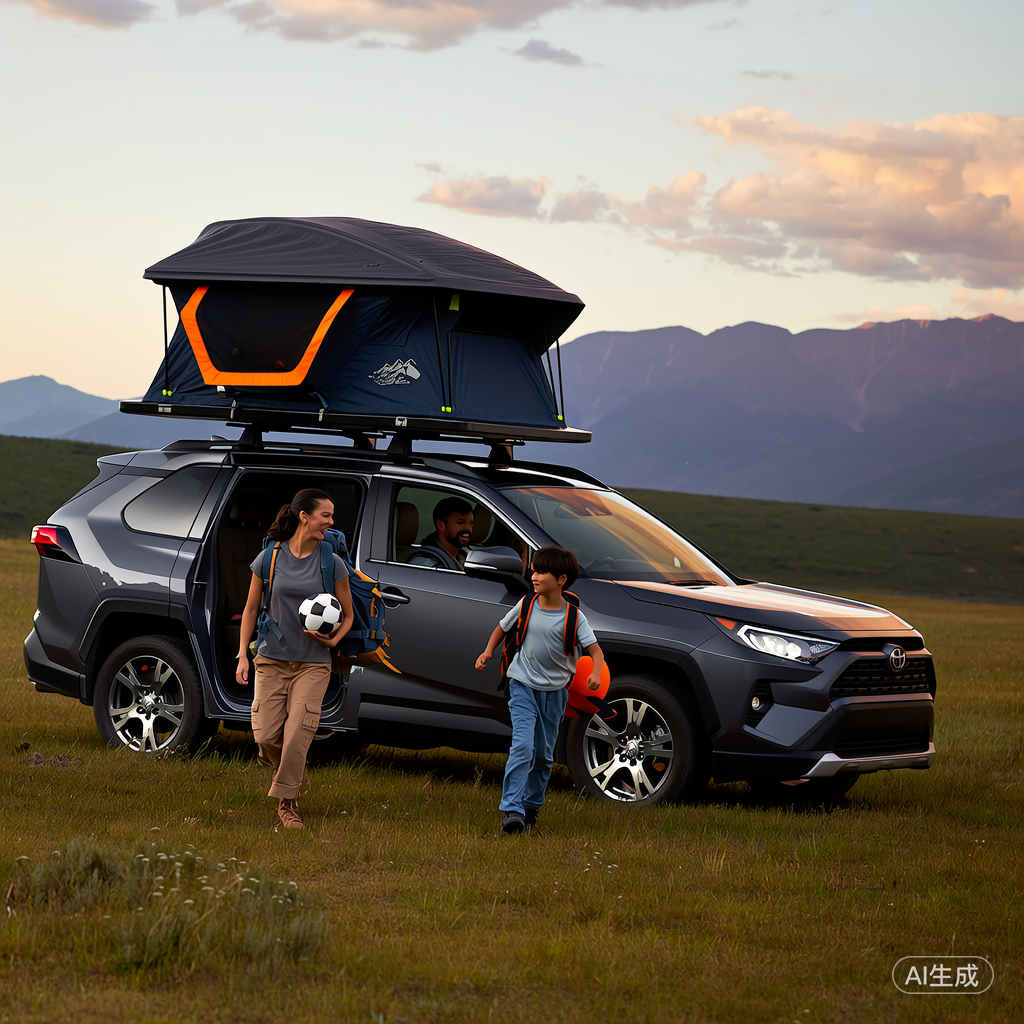When selecting a manufacturing partner for custom dome tents designed for year-round use, it is critical to evaluate technical capabilities, material expertise, and production reliability. A professional roof tent factory must demonstrate proficiency in engineering durable structures that withstand extreme weather conditions while maintaining user comfort and portability. This guide outlines key criteria for identifying qualified manufacturers in this specialized outdoor product sector.
1. Material Science and Weather Resistance Expertise
The foundation of any all-season dome tent lies in its material composition. Leading factories employ advanced polymer blends and coated fabrics with specific properties:
-
Waterproof ratings exceeding 5,000mm hydrostatic head for prolonged rain protection -
UV-resistant coatings to prevent degradation from prolonged sunlight exposure -
Thermal insulation layers using closed-cell foam or reflective mylar technologies -
Mildew-resistant treatments for humid environments
Factories should maintain in-house material testing labs to verify performance metrics against ASTM F1959 and ISO 811 standards. Seasoned manufacturers often collaborate with textile engineers to develop proprietary fabric laminates optimized for temperature regulation across diverse climates.
2. Structural Engineering Capabilities
Professional roof tent factories implement computer-aided design (CAD) systems to optimize load distribution and aerodynamic stability. Key engineering considerations include:
-
Wind tunnel testing for structural integrity at gust speeds exceeding 150 km/h -
Snow load simulations using finite element analysis (FEA) software -
Modular frame systems employing aircraft-grade aluminum alloys (6061-T6) -
Tensioned membrane design principles to prevent sagging in humid conditions
Advanced manufacturers utilize 3D prototyping technologies like SLA printing to validate hinge mechanisms and deployment systems before mass production.

3. Production Process Control
A reliable factory maintains strict quality control across all manufacturing stages:
-
Laser-guided cutting systems with ±0.5mm precision for fabric components -
Automated welding stations for consistent RF-sealed seams -
Environmental test chambers simulating -40°C to 70°C operating ranges -
Batch traceability systems using RFID tagging for component tracking
Look for facilities certified under ISO 9001 standards with documented corrective action processes for defect resolution.
4. Customization Flexibility
Top-tier factories offer comprehensive customization options:
-
Multi-layer insulation configurations for specific climate zones -
Integrated ventilation systems with adjustable airflow channels -
Smart fabric integration for solar panel compatibility -
Vehicle-specific mounting solutions with universal fitment kits
Experienced OEM partners maintain extensive design libraries covering over 200 vehicle models and can develop bespoke mounting interfaces within 4-6 weeks.
5. Regulatory Compliance and Testing
Ensure the factory conducts mandatory safety assessments:
-
Flammability tests per CPAI-84 standards -
Chemical compliance with REACH and CPSIA regulations -
Structural integrity certifications from SGS or TÜV -
Durability cycle testing exceeding 10,000 deployment cycles
Leading manufacturers often exceed legal requirements by implementing proprietary stress tests simulating 10-year product lifespans.
6. Supply Chain Management
A professional factory maintains vertically integrated operations:
-
Raw material reserves for 6 months of uninterrupted production -
Dual sourcing agreements for critical components -
Just-in-time inventory systems with real-time tracking -
Logistics partnerships for global distribution networks
Factories with in-house tooling departments can maintain tighter tolerances and faster design iteration cycles.
7. Technical Support Infrastructure
Value-added manufacturers provide:
-
3D installation guides with augmented reality visualization -
Warranty management systems with multi-language support -
Field performance analytics from IoT-enabled tent prototypes -
Dealer training programs with certified technical instructors
The most advanced factories offer lifetime technical support for product modifications and upgrades.
When evaluating potential partners, request comprehensive technical documentation including material safety data sheets (MSDS), structural engineering reports, and third-party test certifications. Verify production capabilities through facility audits and sample testing under actual field conditions.
References:
Outdoor Industry Association. (2023). Advanced Textile Solutions for Extreme Conditions.
International Journal of Materials Science. (2022). Structural Performance Metrics in Portable Shelters.
Global Manufacturing Standards Institute. (2023). Quality Control Protocols for Outdoor Equipment Production.”